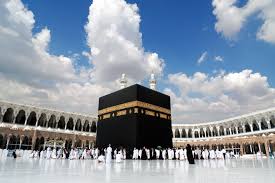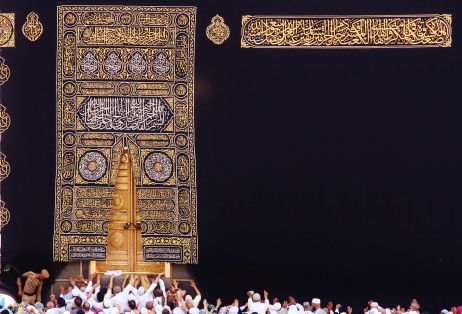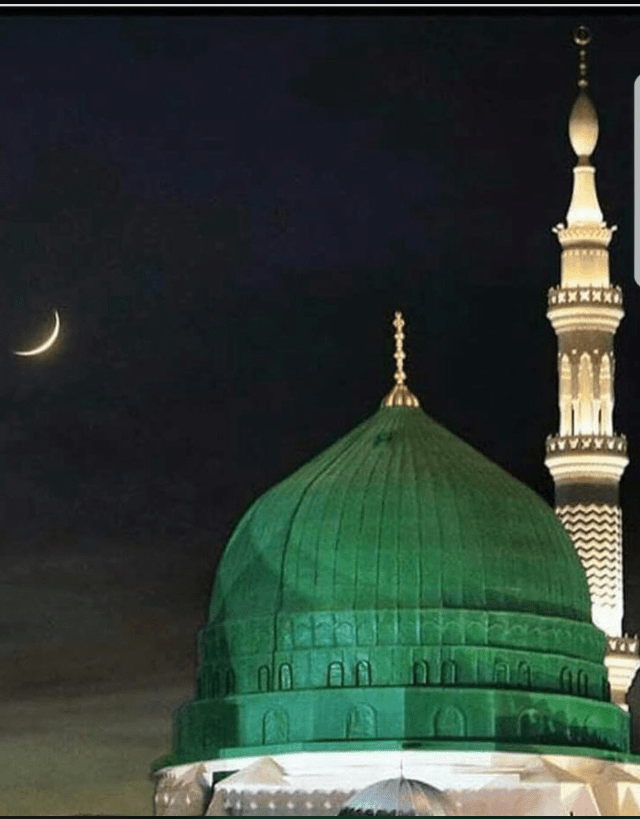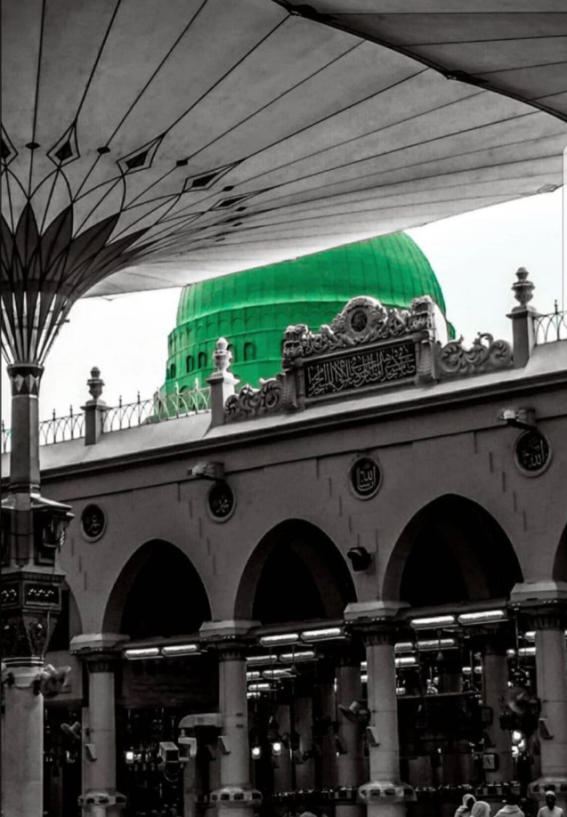بسم الله الرحمن الرحيم


This poem was written to inspire and increase our love for the Haramayn Shareefayn, to instil its beauty and dignity in our hearts. Allah accept my efforts and reignite our love for the holy lands.



This poem was written to inspire and increase our love for the Haramayn Shareefayn, to instil its beauty and dignity in our hearts. Allah accept my efforts and reignite our love for the holy lands.


I gave my class a competition when they finished their Seerah book, to write the summary of the Seerah in a poetic form. Here are the winners! Alhumdu Lillah…
He was born in the year when Abraha brought his elephants,
And it was the year Allah showed his benevolence.
Never knowing his father, his life was hard to fix,
But sadly, his mother also died when he was at the age of 6.
Now in the hands of Abdul Muttalib his life looked to be great,
It was a shame that this honoured man died when the Prophet SAW was only 8.
From then on, his uncle Abu Talib held the responsibility of his life,
And when the Prophet SAW was 25, Khadijah RA was to be his first wife.
With Khadijah RA, 2 boys and 4 girls he had,
A happy family they were and he was glad.
Gaining Prophethood at the age of of 40, he had an Ummah to make,
To serve Allah, he made it an opportunity that he would proudly take.
When it came to his wives, he had eleven,
And in one sitting he granted ten Sahabah RA Heaven.
From Makkah to Madinah he migrated with his Sahabah RA,
But he returned to do Hajj and do Tawaf of the Ka’bah.
Together they fought in in many battles for the sake of their Lord,
Passionately calling ‘Allahu Akbar’ as they up lifted up their swords.
At the age of 63, the Prophet Muhammad SAW sadly passed away,
However, the religion of Islam has lived on to this day.
Uwaiz Ebrahim Bahadur, 15 years old.
1st position.

When the truth was lost and hearts were locked,
Allah sent a Prophet to guide hearts which were lost.
The blessed Muhammad was born in Makkah.
He was sent to teach right from wrong,
To worship nobody besides Allah, who is the only one.
His Sunnah guided people who were astray,
It gave them a way of life, telling them how to behave.
The Prophet SAW told us Paradise or Hell,
To follow the Qur’an and act upon what is said.
He loved nobody more than his final Ummah,
Even as he lay on his deathbed he cried for his followers.
The moment he left this world,
He left 3 men in charge to ensure the beauty,
Of Islam reached everyone’s hearts.
Zubair Iqbal Patel, 18 years old.
2nd position.

About the Prophet Muhammad’s SAW Life
In the year 570 a special boy was born,
His name was Muhammad and deserved to take the throne.
He was born in Makkah where the beautiful Ka’bah was built by his beloved ancestors Ibraheem AS and Ismaeel AS,
The unfortunate demise of the Prophet’s father Abullah RA took place two months before he was born.
His mother Aminah RA sent him to Halimah Sadiyah to be nursed and be brought up by her,
After the 4 years he spend in the tribe of Saad, his respected mother passed away.
He then went to live with his courageous grandfather Abdul Muttalib, whose soul went after 2 years,
It was now the blessed Abu Talib’s turn, it was from him that the Prophet SAW started to learn.
The Prophet SAW was now 25 and he travelled to Syria at the request of Khadijah RA,
He then married her and had six children – 2 boys and 4 girls.
The 2 sons Abdullah and Qasim died when they were infants,
This was a tragic moment for him SAW,
And how can we forget his adopted son Zayd ibn Harithah RA?
His daughters, Zaynab, Ruqayyah, Umme Kulthum and Fatimah RA,
Two were married to Uthman RA and one to Ali RA.
As time went by, Islam grew and the Muslims had enemies,
They fought in wars like Badr where there were fewer than 400 men,
But the Makkans had more than 1,000 as enemy.
Islam spread far when the Prophet SAW became old, by 63
He was leading Maghrib Salah and could not continue, so told Abu Bakr to carry on.
This was an indication, to the next leader after him SAW,
Who was known as al-Siddique, the most truthful after him SAW.
Adam Irfan Mohammed, 11 years old.
2nd position

A Poem About The Prophet Muhammad SAW
He was born in the Year of the Elephant,
The Year of the Elephant is called Aamul Feel.
The Prophet SAW was cared by Halima RA, but when it was time to go,
Halima RA wanted him to stay some more.
When he returned, at age 6 his mother passed away,
This was a time of very tough days.
Then came along his beloved grandad Abdul Muttalib, who took him in his care,
His grandad was very just and very fair.
At the age of 25 he got married to a lady called Khadijah RA,
And later, in total he had 11 wives.
At the age of 40 he got Prophethood,
In Makkah there was a lot of evil and not much good.
He SAW became a Prophet, the last Prophet of Allah,
This Prophet made Islam reach very very far!
Abdullah Faizal Kalu, 9 years old.
3rd position.

![]()
19th Shawwāl 1438 AH ~ Thursday 13th July 2017
Delaying Hajj
By Hadrat Mawlānā Muhammad Saleem Dhorat (hafizahullāh)
Hajj is one of the fundamental pillars of Islām, and obligatory for every Muslim male or female who meets its requirements and whom Allāh ta‘ālā grants the capability to carry it out. If there are no Shar‘ī excuses to prevent you from fulfilling the obligation of hajj, you should not delay.
Shaytān’s Ploy
Every year, however, Shaytān whispers the following thought in the minds of those who are under an obligation to go for hajj: “I have some important reasons preventing me from going this year, but I will definitely go next year, no matter what happens, and I will absolve myself of this obligation.” In this way Shaytān secures a year’s grace for himself. The following year, just before hajj, he will play the same trick again and secure yet another year. Shaytān leads people on in this manner right up to their graves.
It is another amazing trick of Shaytān that whatever he whispers to people, he never encourages them to rule out the intention of fulfilling any of Allāh ta‘ālā’s commands. Someone who has been neglecting salāh for years will not think to himself that he intends never to perform salāh. And likewise with sins: Shaytān never makes people feel they will never give up a particular disobedience to Allāh ta‘ālā. Someone who indulges in drinking alcohol, for example, will never think that he is never going to give it up, but will always intend one day, possibly when Ramadān comes, to definitely give it up. This is the very condition of many Muslims regarding hajj; not for a moment do they entertain the thought of leaving this world without having fulfilled the obligation of hajj, but on the other hand, they never make a firm decision to do it either.
The Affection of Rasūlullāh sallallāhu ‘alayhi wasallam for his Ummah
Being so affectionate, kind and merciful, anything that places his Ummah in difficulty bears heavily on Rasūlullāh sallallāhu ‘alayhi wasallam. Allāh ta‘ālā describes this quality in the Qur’ān:
Surely there has come to you, from your midst, a Messenger who feels it very hard upon himself if you face a hardship, who is very anxious for your welfare; and for the believers he is very kind, very merciful. (9:128)
At every juncture, Rasūlullāh sallallāhu ‘alayhi wasallam has tried to save us from harm. He has said regarding those people upon whom hajj is fard, and who have made the intention to go:
Whoever intends hajj should hurry! (Abū Dāwūd)
This is because even when someone makes the intention to go for hajj, Shaytān erects obstacles and whispers all sorts of thoughts and worries into the heart. Our beloved Prophet sallallāhu ‘alayhi wasallam warns us not to be deterred by these tricks, but to start preparations straight away.
Trust in Allāh ta‘ālā
Everything is in the hands of Allāh ta‘ālā, and when a servant of his makes the firm intention to go for hajj, He removes all the difficulties and obstacles. Some people, misled by Shaytān, worry about their children or their parents, while others worry about their businesses and earnings. All this is actually a test from Allāh ta‘ālā to see whether His servant is prepared to sacrifice everything in order to fulfil the obligation he has to Allāh ta‘ālā. If you steel yourself to make these sacrifices, Allāh ta‘ālā will make your heart firm, grant you courage and take over the responsibility of settling all your affairs.
Look to the example of the People of the Cave described in the Qur’ān. A handful of young men were up against an idolatrous people and an idolatrous king. There were nothing but obstacles in their path of upholding tawhīd, yet when they rose to the challenge, Allāh ta‘ālā strengthened them and protected them:
We made their hearts firm when they stood up and said: “Our Lord is the Lord of the heavens and the earth…” (18:14)
An Invitation from Allāh ta‘ālā is a Great Honour
Allāh ta‘ālā does not invite just anyone to His House; it is a great honour to be given the opportunity to visit the sacred cities of Makkah Mukarramah and Madīnah Munawwarah. If we had true love for Allāh ta‘ālā, we would long to visit His House, even if it was not obligatory upon us, and we would be prepared to undergo any hardship to get there. Those who, despite having the means, have not yet received the tawfīq to undergo the journey should be concerned about their condition: could it not be that Allāh ta‘ālā is displeased with them and so does not want them to be guests of His House? Tawbah and istighfār should be made immediately in abundance, and humility adopted, beseeching Allāh ta‘ālā to grant us the privilege of visiting theHaramayn.
Perform Hajj Before it is Too Late
We need to consult the ‘ulamā and muftīs concerning our own circumstances to find out if we really do have a Shar‘ī excuse to postpone going for hajj. People postponehajj for all sorts of reasons: some do not go because they want their parents to perform hajj first; some wives, who have a mahram available to accompany them, put off hajj in order to go with their husbands; some husbands wait for their wives, etc. If a person were to die without having fulfilled the obligation of hajj, there are dire consequences in the hereafter.
If someone leaves a wasiyyah requesting his next of kin to perform hajj on his behalf, it is hoped that Allāh ta‘ālā will grant forgiveness once the hajj is performed, but he is still a sinner for failing to perform hajj despite having the means during his life. And it is a sad fact that even if a wasiyyah is left, people nowadays have so much love for wealth that they are not prepared to spend even a pound for the sake of their departed parents. They do not have the time or the concern to make the journey, even if the money their parents left them is more than sufficient to cover the costs. Therefore each individual should ensure that the obligation of hajj is fulfilled at the earliest opportunity.
May Allāh ta‘ālā grant a safe journey to all those who are going for hajj this year and grant them hajj mabrūr. May He guide those upon whom hajj is fard but who have not resolved to go yet, and may He grant all the necessary means to those who long to go for hajj yet are unable to do so. Āmīn.
© Riyādul Jannah (Vol. 17 No. 10/11, Oct/Nov 2008)
• Please forward this message on to all your contacts •
Unsubscribe
Remove your address from our mailing list. Unsubscribe.
Bismillah,

If you did not have the ability to perform Hajj this year, worry not. Below are deeds equal to performing Hajj:
1 – Performing the obligatory prayers in congregation:
Abu Dharr (RA) narrated that a group of the Companions came to the Prophet (Sallallahu Alaihi Wasallam), and said, “O Messenger of Allah, the wealthy people will have higher grades and will have permanent enjoyment and they pray like us and fast as we do. They have more money, which they give in charity.” The Prophet (Sallallahu Alaihi Wasallam), replied: “Has Allah not rendered for you the ‘Isha’ prayer in congregation equal to Hajj, and the Fajr prayer in congregation equal to ‘Umrah?”
[Muslim]
The Prophet (Sallallahu Alaihi Wasallam), said: “Whoever walks to [perform] an obligatory prayer in congregation, it is like Hajj [in terms of rewards], and whoever walks to [perform] a voluntary prayer, it is like a voluntary ‘Umrah [in terms of rewards].”
[Hasan]
2 – Reciting Dhikr (Remembrance of Allah) after the five daily prayers:
Abu Hurayrah (Ra) narrated that a group of destitute people came to the Prophet (Sallallahu Alaihi Wasallam), and said, “O Messenger of Allah, the wealthy people will have higher grades and will have permanent enjoyment in high levels in Paradise. They pray like us and fast as we do, but they have more money by which they perform the Hajj, ‘Umrah, participate in Jihaad and give in charity.”
The Prophet (Sallallahu Alaihi Wasallam), replied: “Shall I not tell you something upon which if you acted you would catch up with those who have surpassed you? Nobody would surpass you and you would be better than the people amongst whom you live except those who would do the same. Say ‘Subhan Allah’, ‘Alhamdulillah’ and ‘Allahu Akbar’ thirty-three times each after every (compulsory) prayer.’” [Al-Bukhari]
3 – Praying Fajr with congregation & remaining seated in worship until after Sunrise:
The Prophet (Salallahu Alaihi Wasallam) said: ‘He who performs Fajr Salat with Jamaat (congregation) and remains seated in the same place while engaging in Dhikr (remembrance of Allah) until after sunrise and thereafter performs 2 Rakats Nawafil Salat, (Ishraq), he will obtain the Thawab (reward) of one Hajj and one Umrah.’ [Tirmidhi]
From `Abdullah bin `Aamir (RA) that Abu Umamah and `Utbah Bin `Abd (RA) related that Allah’s Messenger, (Sallallahu `alayhi wa sallam) said: “Whoever prays as-Subh. (i.e. Fajr prayer) in congregation then sits until he prays for Allah the prayer of Dhuha has the reward like that of a haajj (pilgrim performing Hajj) and a mu`tamir (pilgrim peforming `Umrah), complete reward of his Hajj and his `Umrah”
[Tabarani]
4 – Going to the Masjid to teach and learn carries the reward of Hajj
Abu Umamah al-Bahili (RA) that the Messenger of Allah (Sallallahu Alaihi Wasallam) said:
من غدا إلى المسجد لا يريد إلا أن يتعلم خيرا أو يعلمه كان له كأجر حاج تاما حجته
“Whoever goes to the masjid, wanting nothing except to teach what is good or to learn, will have the reward of a completed Hajj.”
[Tabarani, Mu’jam al-Kabeer, 7348 and others]
5 – To recite “SubhanAllah” 100 times in the morning and evening.
عن عبد الله بن عمرو رضي الله عنهما قال قال رسول الله صلى الله علي وسلم:
من سبح الله مائة بالغداة ومائة بالعشي كان كمن حج مائة مرة…الخ
رواه الترمذي (3471) وقال: حسن غريب.
‘Abdullah ibn ‘Amr (Ra) reported That Rasulullah (Sallallahu Alaihi Wasallam) said: “He who recites SubhanAllah 100 times in the morning and another 100 times in the evening is like one who performed Haj 100 times!”
[Sunan Tirmidhi, hadith: 3471 with a sound chain]
6 – Performing the Friday Prayer
Sa`id bin al-Musayyib (RA) said performing the Friday Prayer is “more beloved to me than a supererogatory (voluntary) Hajj.”
[Hafidh Ibn ‘Asakir (RA) has quoted a similar virtue via Imam Al-Awza’i (Ra). Hafidh Ibn Rajab (RA) also supported this content with two Ahadith]
7 – Fulfilling the needs of your brother or sister
Hasan Al-Basri (RA) said: “Your proceeding to fulfil the need a fellow Muslim is better for you than one Hajj after another!”
[Also quoted By Zabeedi (Ra) in Sharhul Ihyaa, vol.6 pg.292]
8 – Being good to your parents
Anas (RA) reports that a man came to Rasulullah (Sallallahu ‘alaihi wa sallam) and said: “I wish to participate in Jihaad, but I cannot afford it” Rasulullah (Sallallahu ‘alaihi wa sallam) enquired if any of his parents were alive, to which he said: “Yes! My mother is alive” Rasulullah (Sallallahu ‘alaihi wa sallam) said: “Show Allah how you serve her. If you do so (duly) you will be like a: Haaji, a Mu’tamir (one doing ‘Umrah) and a Mujaahid (One striving in Allah’s way).”
[Abu Ya’la, hadith:2760, and Tabarani with good chains.-Targheeb, vol.3, pg. 315 & Mukhtasar Ithaaf, hadith:5721]
9 – Observing the 10 days of I’tikaf:
Ali Ibn Hussain (RA) narrates from his father that Prophet (Sallallahu Alaihi Wasallam) said: “He who observes the ten days I’tikaf during Ramadhan will obtain the reward of two Hajj & two Umrah.”
(Bayhaqi)
10 – Performing Umrah in Ramadan
Ibn `Abbas (RA) said that the Prophet (Sallallahu Alaihi Wasallam) said to a woman from among the Ansaar — Ibn `Abbas mentioned her name but I forgot it — “What kept you from performing Hajj with us?” She said, “We only have two camels,” and the father of her son and her son had gone for Hajj on one camel, and he left the other camel so that they could carry water on it. He said, “When Ramadan comes, go for ‘Umrah, for ‘Umrah in (Ramadhan) is equivalent to Hajj.”
[Al-Bukhari (1782) and Muslim (1256)]
1st Dhul Hijah 1437
Assalamu Alaikum Wa Rahmatullahi Wa Barakatuhu,